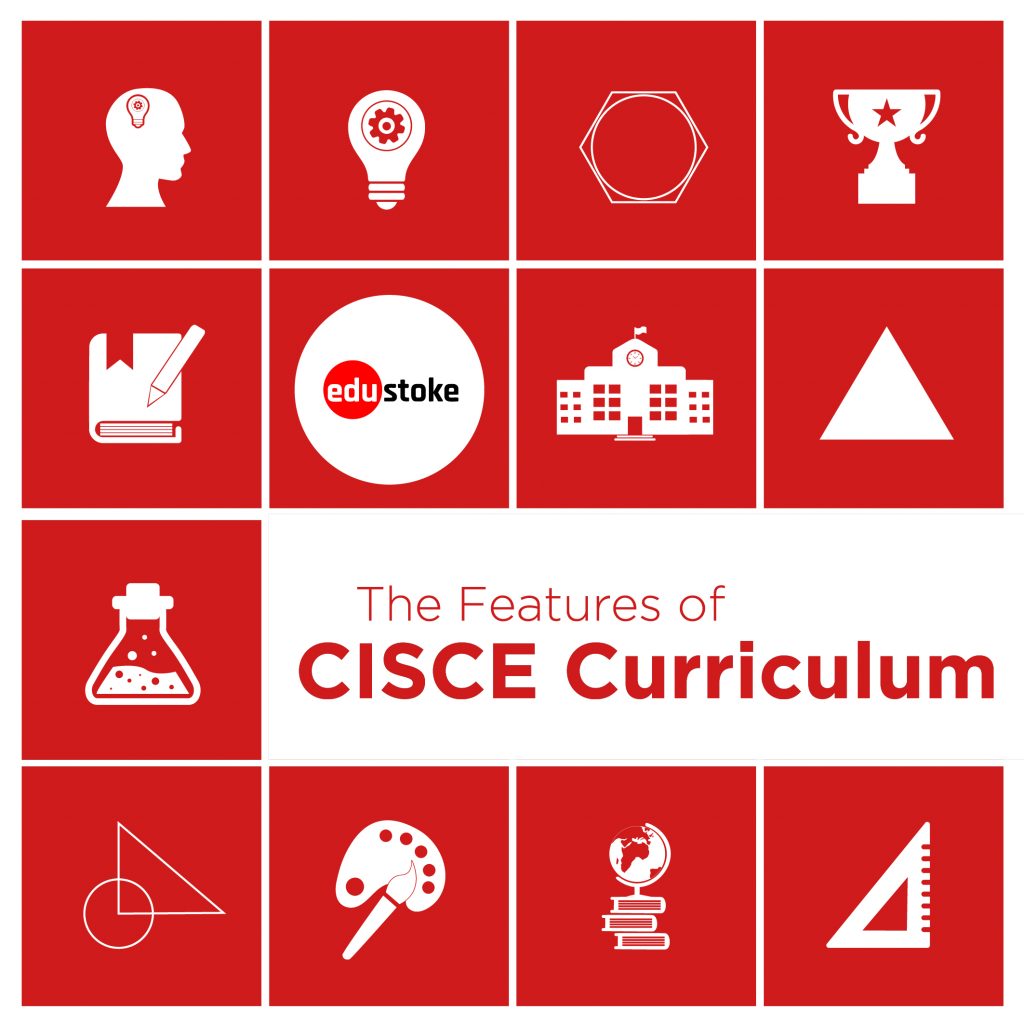The Council for the Indian School Certificate Examinations or the CISCE curriculum was established in 1958 and has more than 2,300 schools affiliated under its aegis. The foundation of the Indian Council was laid considering the need for a board to administer the University of Cambridge conducted examinations and blend them according to the changing educational requirements. It is a national-level board responsible for conducting the Indian Certificate of Secondary Education and the Indian School Certificate Examination for high school and intermediate respectively. CISCE has built its base on some paradigm shifts that make the curriculum deliver international level education, the following content piece addresses the salient features of the CISCE.
The curriculum is designed according to the New Education Policy 1986 in English medium. It emphasizes on comprehensive growth of students with a focus on practical knowledge and analytical skills. The syllabus of the board is structured to improve the skills and knowledge to grow in the direction of job-oriented needs.

Indian Certificate of Secondary Education
The ICSE examinations are conducted by the CISCE board for the 10th class students. The class 10th subjects are fragmented into three groups from which the first group has a compulsory subject list, the second group has subject choice to opt for two subjects and the third group has subject choice to opt for any one subject. For both Group 1 and Group 2 subjects, the percentage distribution is 80% based on external examinations and 20% from the internal examinations. However, for the Group 3 subjects, the percentage distribution is 50% from both internal and external examinations.
For classes 1 to 5, the schools affiliated with the CISCE have the freedom to choose the books; however, the board has laid the guidelines for every subject to make the syllabus relevant. For the higher classes from 6 to 10, the board has a well-structured syllabus with guidelines. There are no textbooks decided by the council but they provide a list of books the schools can select for the students. For the board exams, there are seven subjects out of which four are compulsory subjects and three of them have a choice.
Indian School Certificate
The ISC examinations are conducted by the CISCE board for the 12th class students. The class XII students have English as a compulsory subject in all three streams (Science, Commerce, and Arts) and a list of elective subjects to choose from. The curriculum emphasizes language, literature, oral, writing skills, and in-depth study of concepts that lead to the holistic development of students.
The board follows a disciplined and systematic approach and has an international standard of teaching and learning. The difficulty level of subjects is kept accordingly in every class so that students are not exposed to a lot of pressure all of a sudden in higher classes.
For both ICSE and ISC, along with the theory subjects, the board conducts practical exams for subjects like Art, Chemistry, Physics, Home Science, etc. Both the practical and theory subjects are compulsory to pass for a promotion to the higher classes.
Certificate of Vocational Education Examination
The CVE -12 examinations are conducted by CISCE according to MHRD- Ministry of Human Resource Development recommendations through the JCVE- Joint Council of Vocational Education. These examinations are conducted after completion of two years of studies after high, ISC examinations or equivalent in English medium. This course is designed to prepare students for specific vocations and students cannot appear for these exams privately.
The salient features of the Council for the Indian School Certificate Examinations
Here are a few features of the CISCE that make the curriculum offer holistic way of learning:
- The CISCE curriculum is theme-based and comprehensively addresses the study areas. Along with the same, environmental and social issues related to the topic are addressed thematically.
- It follows a child-centric approach that gives utmost importance to the participation and engagement of children by relating them through experiences. The developments in the syllabus are done gradually to give students a progressive graph of learning.
- The curriculum involves learning experiences including classroom activities, discussions, role-plays, projects, surveys, poster making, slogan writing, and more that ensures learning is not merely limited to books but is wholesome and joyful.
- One of the features of the CISCE that make the curriculum stand out is its Spiralling. It follows a sequential learning arrangement where topics are introduced on the base-level classes and when they progress over higher classes, the topics are revisited to give a better understanding.
- The curriculum follows an integrated approach where every topic is interconnected in a meaningful way so that students can correlate their experience within topics and subjects.
- The curriculum not only focuses on academic excellence but also has an equal bend towards values and skills that make students emerge as better human beings.
Besides these prime features Of the CISCE Curriculum, the council also emphasizes contextualization and provides a constructive approach with a balance of sports and co-curricular. CISCE is an educational board committed to serving children with an education that can add value to their lives, and thereby empower them to be an asset to society by creating exciting learning opportunities. There are various day and boarding schools in Mumbai affiliated with the ICSE board that enrich students’ lives with their commitment to academic excellence.
